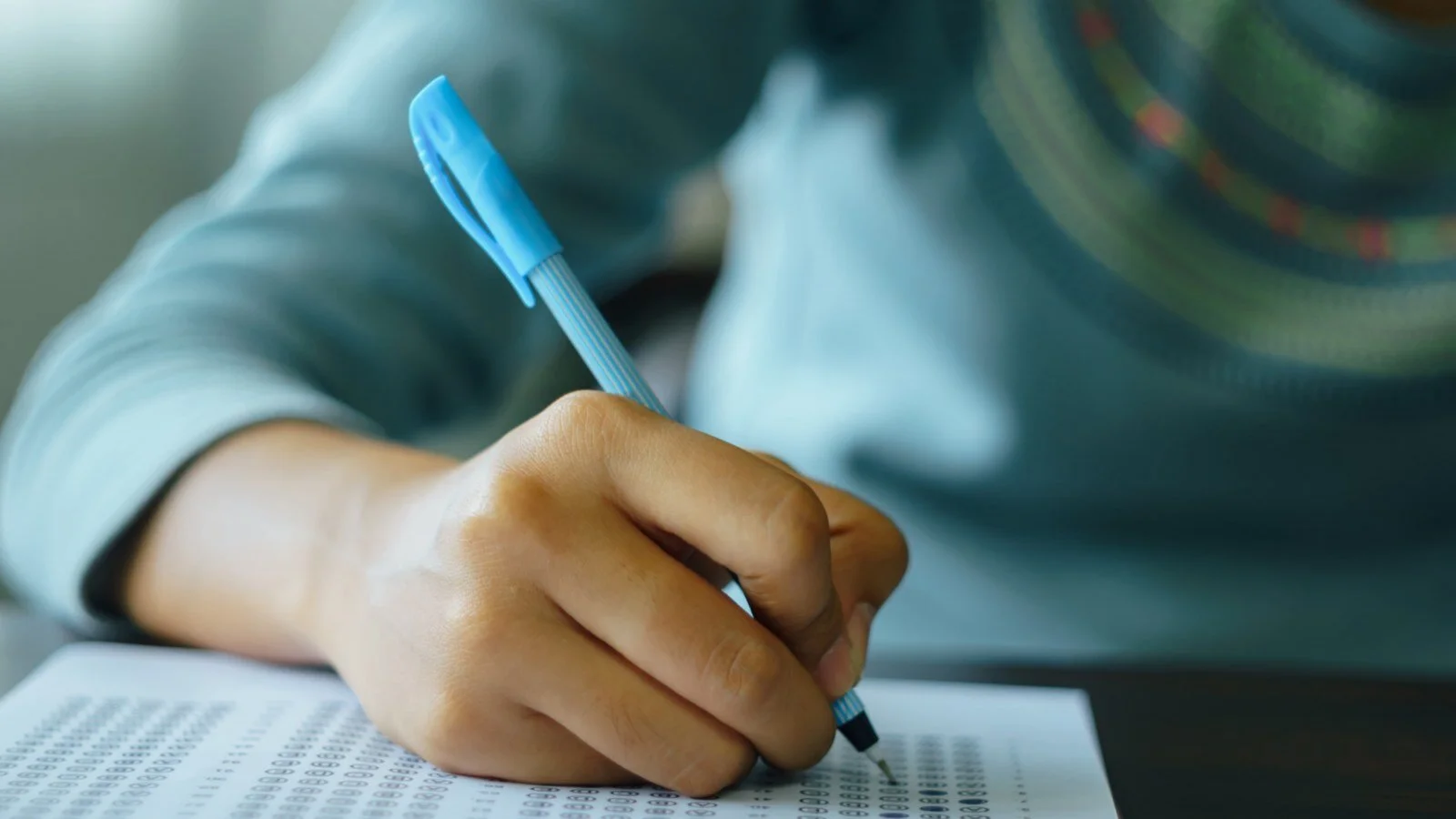Should Standardized Tests Continue to be Waived During the COVID-19 Pandemic?
Standardized tests in the US have been on pause during the COVID-19 pandemic - causing some to question their necessity at all. Source.
At the beginning of the 2020-2021 academic school year, the U.S. Department of Education announced that the federal government did not intend to continue to waive required statewide assessments for the upcoming school year. For the 2019-2020 academic school year, K-12 public schools were exempt from such standardized tests like the EOC and EOG, due to the disruption to education COVID-19 caused. Many educators and communities hoped to extend the waiver into the 2020-2021 school year, especially after the transition of power from Trump to Biden. However, on February 22nd the Department of Education solidified its stance on the continuation of standardized testing during the pandemic, claiming that schools could not forgo standardized tests but would be given the option to delay the tests into the summer or early fall, hold them remotely, or shorten them. Additionally, it waived the requirement for 95% of all students having to take such tests.
Standardized tests are required by state and federal laws, and the results are used to evaluate school and student performances, teacher accountability, and even help dictate principal salary. In the midst of the pandemic, many concerns have been raised about schools and students still being evaluated on regular conditions despite experiencing the biggest gap and setbacks in learning in the 21st century. While states like NC will not experience the same flexibility of the unprecedented waiver of last year, they can still waive to be exempted from certain accountability measures associated with the results. However, schools will still be required to publicly share report cards to highlight how students have performed at state and local levels.
In North Carolina, there are two sides to the debate concerning standardizing testing during the pandemic. Many educators questioned the feasibility of standardized testing, especially before Biden waived the 95% requirement and in-person testing was the only option. If schools opt to have in-person testing, it will be an obstacle to get students into socially-distances spaces with enough teachers and proctors to administer the tests. On the flip-side, if schools decide to do remote testing, ensuring students have reliable internet service and/or a quiet place to take such high-stake exams (generally worth 20% of their grades) on top of having accurate evaluation of scores will be a difficult feat to overcome. If test results will yield meaningful data is the big question here, especially since many students have had a rough adjustment to remote learning and many critics of standardized testing currently claim that since students have not had “traditional” modes of learning, it is unfair to evaluate them based on a traditional test.
Those for standardized testing, like Ian Rosenblum, see test results as a way to help schools understand the impact of pandemic on students, and help identify areas in which students need extra help. Additionally, it will provide parents with information on how their children are doing. Democrats have been pushing for testing to identify and address learning setbacks (especially concerning racial disparities among schoolchildren), without penalizing schools for accountability and falling short of goals. Those on the pro-side claim that without testing, it would hard for schools to know where to focus their efforts as they help students recover for learning disruption that COVID-19 caused, while also being a guide to compare school performances amongst each other.
The current debate about standardized testing during the pandemic falls into larger debate of whether standardized testing should be removed all together. The American Federation of Teachers advocates for the cancellation of federally required tests all together, claiming it is not an accurate way to measure a child’s development and the current pandemic crisis exacerbates that. Standardized tests scores have strongly correlated with a student’s environment and life circumstances, not as an accurate portrayal of a student’s academic capabilities.
Considering the preliminary data released on NC student standardized tests scores this month, many students are underperforming in comparison to fall 2019 scores, Standardized testing had its faults even in “normal” conditions, the idea of continuing to assess student’s academic abilities during a global crisis where education has taken a hard hit is hard to fathom. The road to successfully test all students during the pandemic is also long-winded, considering it will be difficult to not only accurately assess scores derived from remote tests but also in-person testing seems like a logistical nightmare. Continuing to allow schools standardized testing waivers gives educators and students the freedom to focus their attention back to teaching and learning, without the stress of a high-stakes exam and the complications with that looming over their heads.

